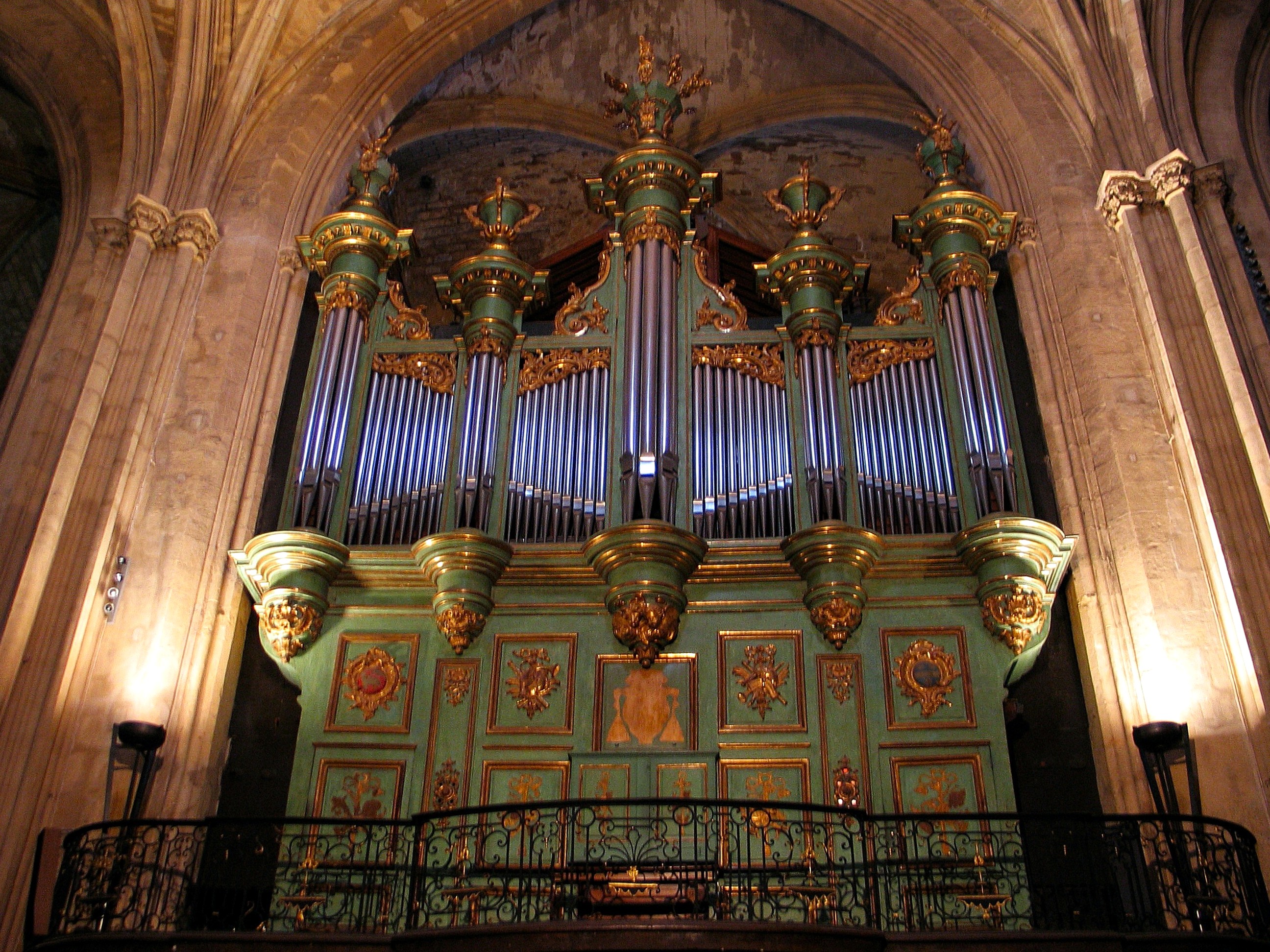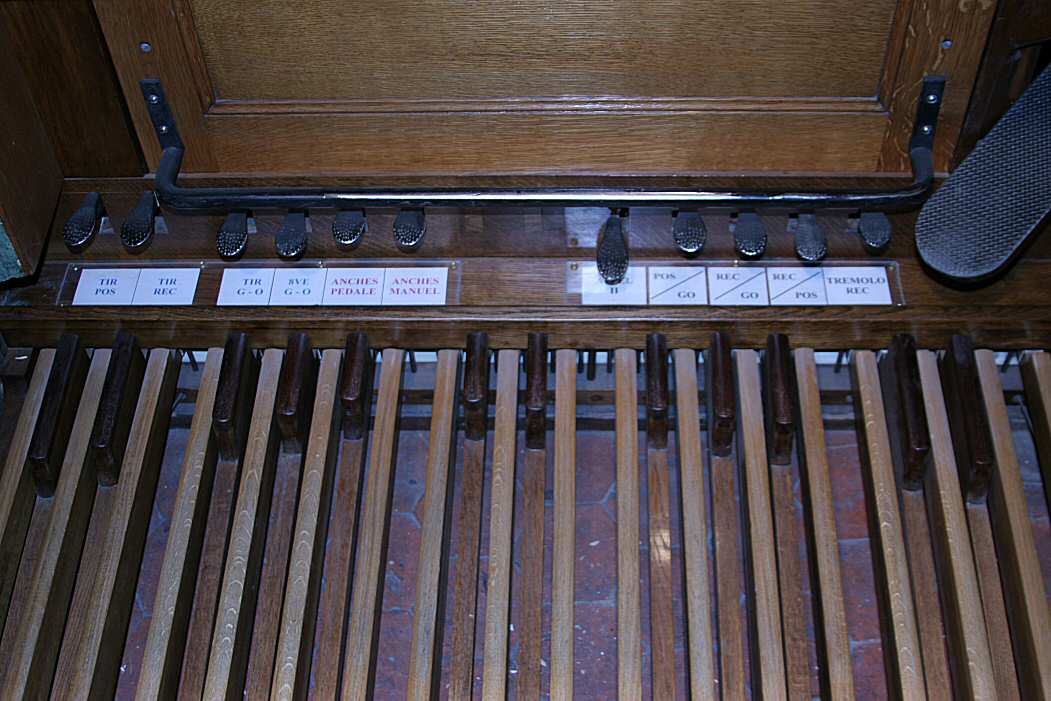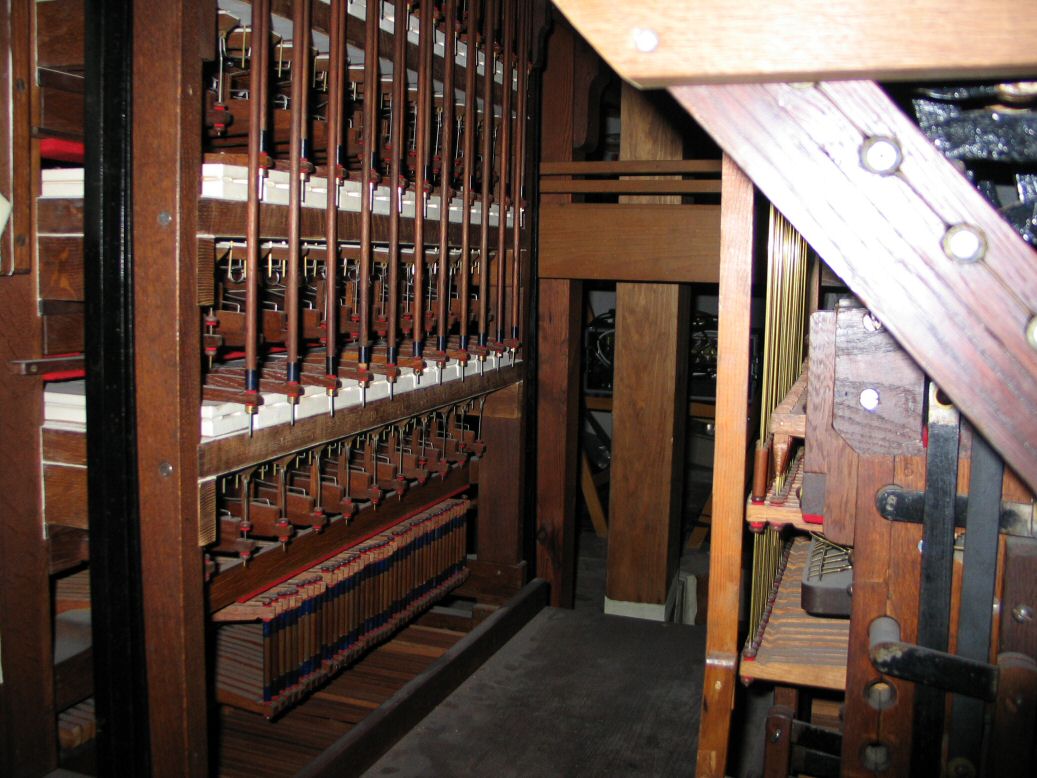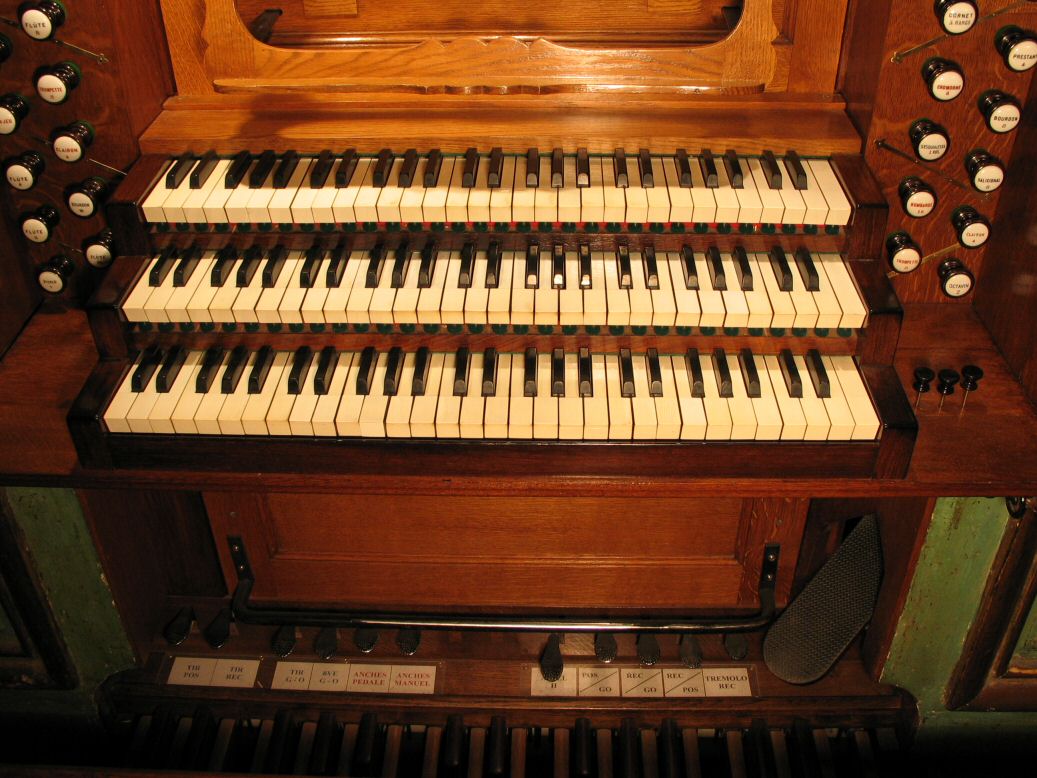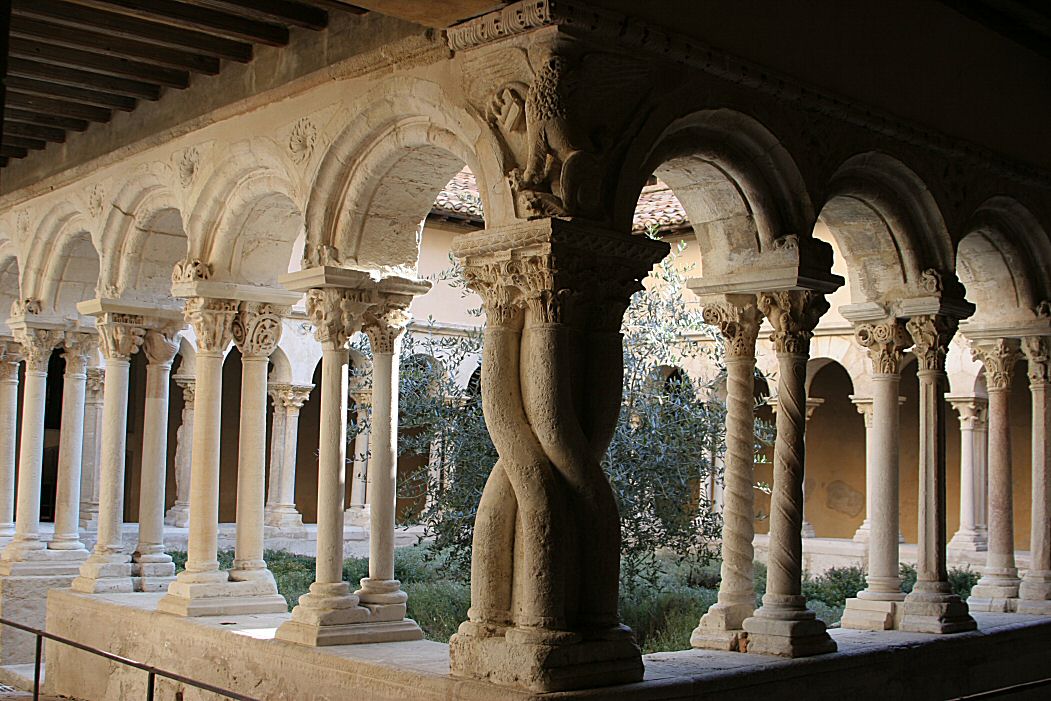Aix-en-Provence, Cathédrale Saint-Sauveur
| Builder | A. Cavaille-Coll |
|---|---|
| Year | ca. 1880 |
| Period/Style | Romantic |
| Stops | 36 |
| Keyboards | 3+P |
| Keyaction | tracker/mechanical |
| Sampleset |
Available
 , sampled by
OrganArt Media
, sampled by
OrganArt Media
|
The organ at the Cathedral St. Sauveur in Aix-en-Provence, initially built in 1854 by Alexandre Ducroquet and later modified by Aristide Cavaillé-Coll in 1880, is a celebrated historical instrument housed within an 18th-century organ case originally crafted by Isnard. Ducroquet constructed the organ on the gospel side of the cathedral, integrating it into Isnard’s pre-existing case, famed for its association with St. Maximin. The enhancements by Cavaillé-Coll included intonation adjustments and the addition of new registers, significantly enriching the organ's symphonic qualities.
Further alterations were made in 1915 by Merklin, who extended the pedal range and added more registers. The restoration efforts in 1972 faced the challenging decision of whether to revert to Ducroquet's original state or maintain the enhancements made by Cavaillé-Coll in 1880. The committee opted to preserve the Cavaillé-Coll modifications, recognizing their superior quality. Following extensive restorations by J. Dunand in 1973, the organ was reinaugurated in 1975 by Marie-Madeleine Duruflé and Maurice Gay. The most recent restoration occurred in 2002, ensuring the instrument's continued prominence. The organ, a classified historical monument, is notable for its romantic-symphonic transition style, featuring unusual registrations like Krummhorn, Sesquialtera, and a brilliant Fourniture and Plein Jeu, enabling performance of a broad French organ repertoire from the late Baroque to contemporary works. The cathedral’s rich acoustics, boasting a reverberation time of up to 6.5 seconds, further enhance the organ’s majestic sound.
Further alterations were made in 1915 by Merklin, who extended the pedal range and added more registers. The restoration efforts in 1972 faced the challenging decision of whether to revert to Ducroquet's original state or maintain the enhancements made by Cavaillé-Coll in 1880. The committee opted to preserve the Cavaillé-Coll modifications, recognizing their superior quality. Following extensive restorations by J. Dunand in 1973, the organ was reinaugurated in 1975 by Marie-Madeleine Duruflé and Maurice Gay. The most recent restoration occurred in 2002, ensuring the instrument's continued prominence. The organ, a classified historical monument, is notable for its romantic-symphonic transition style, featuring unusual registrations like Krummhorn, Sesquialtera, and a brilliant Fourniture and Plein Jeu, enabling performance of a broad French organ repertoire from the late Baroque to contemporary works. The cathedral’s rich acoustics, boasting a reverberation time of up to 6.5 seconds, further enhance the organ’s majestic sound.
| Positif | Grand Orgue | Récit expressif | Pedal |
|---|---|---|---|
| Bourdon 8' | Bourdon 16' | Flûte 8' | Flûte 16' |
| Salicional 8' | Montre 8' | Bourdon 8' | Flûte 8' |
| Prestant 4' | Flûte 8' | Viole de Gambe 8' | Flûte 4' |
| Sesquialtera 2 rgs | Bourdon 8' | Viole de Gambe 8' | |
| Doublette 2' | Gambe 8' | Flûte Octaviante 4' | |
| Plein Jeu IV rgs | Prestant 4' | Octavin 2' | |
| Trompette 8' | Cornet 5 rangs | Trompette 8' | |
| Cromorne 8' | Quinte 2 2/3' | Basson-Hautbois 8' | |
| Clairon 4' | Doublette 2' | Voix Humaine 8' | |
| Picolo 1' | Fourniture 5 rgs | ||
| Bombarde 16' | |||
| 1ère Trompette 8' | |||
| 2ème Trompette 8' | |||
| Clairon 4' |
Vierne Symphony I-Pastorale
0:00
0:00
Bossi-Variations
0:00
0:00
Franck-Choral3
0:00
0:00
Gigout-Toccata
0:00
0:00
Widor 6-5Aix
0:00
0:00
Widor 6-1Aix
0:00
0:00
https://www.organartmedia.com/de/ducroquet-cavaille-coll
 Pipe Organ Map
Pipe Organ Map